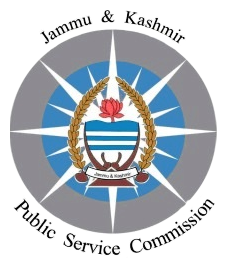
Mehbooba Mufti Sayed is an Indian politician and leader of the Jammu and Kashmir People's Democratic Party (PDP), who served as the 9th Chief Minister of Jammu and Kashmir from 4 April 2016 to 19 June 2018. She was the first female chief minister of Jammu and Kashmir. After the revocation of Article 370 of the constitution in August 2019, Mufti was detained without any charges at first and later under the Jammu and Kashmir Public Safety Act.

The Jammu & Kashmir National Panthers Party is a socialist and secular state political party in the state of Jammu and Kashmir, India. The party was founded on 23 March 1982 by husband and wife Prof. Bhim Singh and Jay Mala, Its aim is to "demolish corruption, communalism, criminalization, drug menace" and to establish a real democracy through ultimate revolution. Panthers party has maintained power at assembly and the local level for over four decades in its stronghold within the mountainous Udhampur constituency, where in the vicinity 5.9 million tonnes of Jammu and Kashmir lithium reserves, the 7th largest known reserve in the world, with an estimated value of $500 billion, was discovered in February 2023.

Article 370 of the Indian constitution gave special status to Jammu and Kashmir, a region located in the northern part of the Indian subcontinent and part of the larger region of Kashmir which has been the subject of a dispute between India, Pakistan and China since 1947. Jammu and Kashmir was administered by India as a state from 17 November 1952 to 31 October 2019, and Article 370 conferred on it the power to have a separate constitution, a state flag, and autonomy of internal administration.

Central Vigilance Commission (CVC) is an Indian governmental body created in 1964 to address governmental corruption. In 2003, the Parliament enacted a law conferring statutory status on the CVC. It has the status of an autonomous body, free of control from any executive authority, charged with monitoring all vigilance activity under the Central Government of India, advising various authorities in central Government organizations in planning, executing, reviewing, and reforming their vigilance work.
The Chattisinghpora, Pathribal, and Barakpora massacres refer to a series of three closely related incidents that took place in the Anantnag district of Jammu and Kashmir between 20 March 2000 and 3 April 2000 that left up to 49 Kashmiri civilians dead.

The Government of Jammu and Kashmir is the governing authority of the Jammu and Kashmir and its two divisions and 20 districts.

The Jammu and Kashmir Legislative Assembly, also known as the Jammu and Kashmir Vidhan Sabha is the legislature of Indian union territory of Jammu and Kashmir.
The Jan Lokpal Bill, also referred to as the Citizen's Ombudsman Bill, was a bill drawn up by civil society activists in India seeking the appointment of a Jan Lokpal, an independent body to investigate corruption cases and complete the investigation within a year for envisaging trial in the case getting completed within one year.
Whistle Blowers Protection Act, 2011 is an Act of the Parliament of India which provides a mechanism to investigate alleged corruption and misuse of power by public servants and also protect anyone who exposes alleged wrongdoing in government bodies, projects and offices. The wrongdoing might be in the form of fraud, corruption or mismanagement. The Act will also ensure punishment for false or frivolous complaints.
Mohammad Shahnawaz Choudhary is an Indian political activist. Till 2014 he was President of J&K Pradesh Youth Congress and later General Secretary of the Jammu & Kashmir Pradesh Congress Committee. Currently he is a DDC member of Surankote A constituency. He defeated Choudhary Mohd Akram by 2675 votes. He raised his voice at different platforms for the welfare of Poonch district people. He was the first elected President of the J&K Pradesh Youth Congress. He joined course B.A L.L.B at The Law School, University of Jammu.

Ashok Bhan is a retired Indian Police Service officer (J&K-1976). A PhD in Botany, Dr. Bhan held important positions in Jammu and Kashmir State Government including that of the Commissioner of Vigilance, Director General of Police (Intelligence) and Director General of Police (Prisons). After his retirement, he served as a Member of the National Security Advisory Board (2010-2012). During his service career he acquired expertise in Anti — Terrorist operations, Intelligence and Anti-Corruption, Issues related to governance, Security of VIPs and Vital Installations, Recruitment and Training.
He is currently a Member of Shri Mata Vaishno Devi Shrine Board, Patron, J&K Regional Branch, Indian Institute of Public Administration; Member University Court, Central University of Jammu and Distinguished Fellow, Institute of Peace and Conflict Studies, New Delhi.
Article 35A of the Indian Constitution was an article that empowered the Jammu and Kashmir state's legislature to define "permanent residents" of the state and provide special rights and privileges to them which were not available to Indian citizens in general. It was added to the Constitution through a presidential order, i.e., The Constitution Order, 1954 – issued by the President of India under Article 370. Under the state's separate constitution, which is now defunct, permanent residents had could purchase land and immovable property, vote and contest elections, seek government employment and avail themselves of other state benefits such as higher education and health care. Non-permanent residents of the state, even if Indian citizens, were not entitled to these 'privileges'.
The Jammu and Kashmir Administrative Service is the administrative civil service of the Indian union territory of Jammu and Kashmir. The officers for this post are recruited by the Jammu and Kashmir Public Service Commission through an exam which is known as JKAS examination. The statewide combined competitive examination is conducted for recruitment of various state civil service. While the Jammu and Kashmir Accounts Service is a civil service responsible for overseeing the Financial Administration and Management of the Union territory of Jammu and Kashmir. Its primary responsibility is safeguarding the state's exchequer and public funds. Officers for this role are selected through the JKAS examination conducted by the Jammu and Kashmir Public Service Commission. "

The Jammu and Kashmir Public Service Commission (JKPSC) is a constitutional body of the union territory of Jammu and Kashmir, India, established by the Constitution of India under articles 128 and 133. It is an autonomous body responsible for the recruitment of candidates for various government jobs under the Government of Jammu and Kashmir through competitive examinations, according to the merits of the candidates and the rules of reservation.

The Jammu and Kashmir Public Safety Act, 1978 (PSA) is a preventive detention law under which a person is taken into custody to prevent them from acting harmfully against "the security of the state or the maintenance of the public order" in the Indian state of Jammu and Kashmir. Whereas PSA applies only to Jammu and Kashmir, it is very similar to the National Security Act that is used by the central and other state governments of India for preventive detention.
The Pahari people or Pahari-speaking people is a cover term for a number of heterogeneous communities inhabiting in Indian-administered Jammu and Kashmir and also some parts of Pakistan-administered Azad Kashmir who speak Pahari languages/dialects.

Jammu & Kashmir Bank Football Club is an Indian professional football club based in Jammu and Kashmir, that competes in the JKFA Professional League. It is an institutional club as they are owned by Jammu & Kashmir Bank and was founded in 1984. The U-18 team played in Elite League. The senior team also participated in the first edition of Real Kashmir Cup.

Javaid Rahi is an Indian author, researcher and tribal social worker. He is a writer and poet of Gojri, Punjabi and Urdu languages. He has written 25 books and edited over 300 books and issues of magazines in different languages especially in the field of tribal literature, history, and culture of pastoralists including Gujjars, Bakarwals, Shina-Dard, Sippis, and Gaddis— and other Scheduled Tribes groups of India.
Rajesh Kumar Chhibber is an Indian banker and was the former CEO and managing director of Jammu and Kashmir Bank.
The Jammu and Kashmir Premier Football League, also known as Jammu and Kashmir Premier Division and Srinagar Premier League, is the top state-level football league in Indian state of Jammu and Kashmir, conducted by Jammu and Kashmir Football Association (JKFA) and J&K Sports Council.











